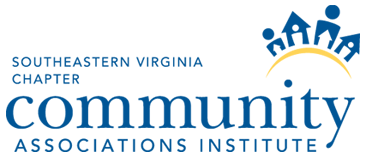Welcome to Budget Season: What It Means for Your Community Association
As the summer winds down and we approach the latter part of the year, it’s time for our community association to turn its focus to one of the most crucial tasks on our calendar: budget season. This period is not just about crunching numbers; it’s an opportunity to reflect on our achievements, plan for the future, and ensure the continued well-being and growth of our community. Here’s what budget season entails and why it’s essential for all of us.
Understanding Budget Season
Budget season is the time when the community association reviews its financial status, plans for upcoming expenses, and sets priorities for the next fiscal year. It involves several key steps:
-
Reviewing the Current Year’s Budget: We start by looking at how our current budget has been used. This involves examining income and expenses, identifying any variances, and understanding the reasons behind them.
-
Forecasting Future Needs: We assess what financial resources will be needed in the coming year to maintain and improve our community. This includes everything from routine maintenance and repairs to new projects and community events.
-
Setting Priorities: Based on our community’s goals and feedback from residents, we prioritize spending. This ensures that our resources are allocated to the most critical and beneficial areas.
-
Drafting the Budget: With all this information, we draft a budget proposal. This document outlines expected income and expenditures and provides a financial roadmap for the upcoming year.
-
Community Involvement: Transparency and involvement are key. We share the budget draft with the community, solicit feedback, and make necessary adjustments before finalizing it.
Why Budget Season Matters
1. Ensuring Financial Health
A well-planned budget ensures that our community’s finances are in good shape. It helps us avoid overspending, ensures that we have funds available for unexpected expenses, and allows us to save for future projects.
2. Enhancing Community Amenities
Budgeting allows us to plan for improvements and additions to our community. Whether it’s upgrading playgrounds, enhancing landscaping, or organizing more community events, a sound budget helps us enhance the quality of life for all residents.
3. Transparency and Trust
Sharing the budgeting process with the community builds transparency and trust. It allows residents to see how their fees are being used and provides an opportunity for them to voice their opinions and contribute to decision-making.
4. Legal and Regulatory Compliance
Proper budgeting ensures that we meet all legal and regulatory requirements. It helps us plan for necessary reserves and ensures that we can cover all our obligations without financial strain.
5. Strategic Planning
Budget season is also a time for strategic planning. It allows us to set long-term goals and ensures that our financial planning aligns with our community’s vision for the future.
How You Can Get Involved
Your participation is vital to the success of our budgeting process. Here’s how you can get involved:
-
Attend Budget Meetings: Join us at budget meetings to stay informed and provide your input. Your insights can help shape our financial priorities.
-
Review the Budget Proposal: Take the time to review the budget proposal when it’s shared with the community. Your feedback is crucial in finalizing a budget that reflects our collective needs and goals.
-
Ask Questions: Don’t hesitate to ask questions or seek clarification on any aspect of the budget. Understanding where and how funds are allocated is important for all residents.
-
Share Your Ideas: If you have suggestions for new projects, improvements, or ways to save money, share them with the board. Community input is invaluable in creating a budget that benefits everyone.
Budget season is more than a financial exercise; it’s a collaborative effort to plan for our community’s future. By working together, we can ensure that our resources are used effectively and that our community continues to thrive. We look forward to your active participation in this vital process and to another successful year ahead.
 Jessica Simpkiss, CMCA, AMS, PCAM is a portfolio manager with MyStreet Community Management. She is active in multiple chapters of CAI, and is the Chair of the Communication committee at the local SEVA chapter.
Jessica Simpkiss, CMCA, AMS, PCAM is a portfolio manager with MyStreet Community Management. She is active in multiple chapters of CAI, and is the Chair of the Communication committee at the local SEVA chapter.

